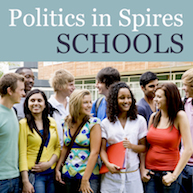
Michael Freeden on Political Ideologies
Why is the study of ideologies so important for understanding—and navigating through—the social world of which we are part? And why do we have to cast aside old approaches that regard ideologies as abstract, superimposed by manipulative and power-thirsty individuals and groups, and opposed to the pragmatism of political life? The simple answer is that we always live in a world of ideologies and every one of us has one, whether we are aware of it or not, and whether it is clearly expressed or just a vaguer set of beliefs and perceptions.
Although every one of us is unique as a human being, we also display patterns of behaviour we share in common, even if they differ on particulars. Those include patterns of thinking about our society and about other societies. Ideologies are one such pattern, concerning the political arrangements and processes of a political community. Sometimes these are on a grand scale: visions of a rich and harmonious future, or plans for control and domination. At other times they are more modest and specific: designing a fairer constitution, reducing poverty, protecting religious beliefs, or having concerns about immigration. Any society will host a number of ideologies, though some may be more prominent and some may be repressed by the groups that are in power. In democratic systems, certainly, ideologies will compete over the control of public policy. Because that competition is over ideas, beliefs and values it is above all conducted through words, oral or written—in Parliamentary debates, newspaper articles, blogs, pamphlets, manifestos, TV programmes and books. Consequently, whoever controls the public language of a society is in a very strong position to implement its policies.









